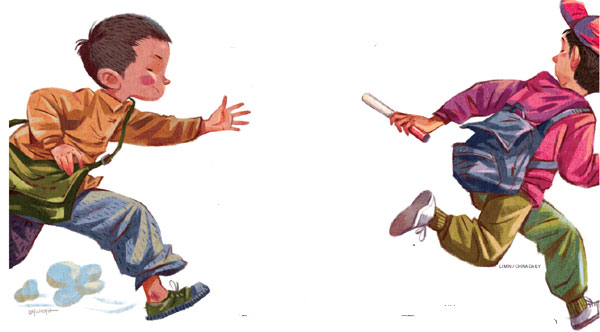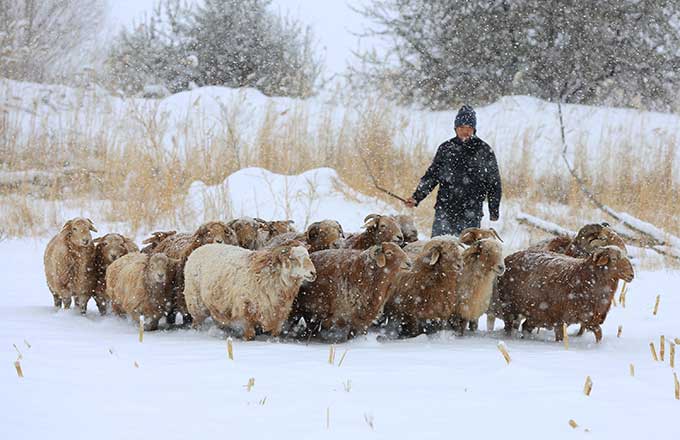A welcome move to bridge urban-rural education gap
Plan will see teachers' salaries rise and number of students in each class decline in countryside
China plans to establish a balanced compulsory education system in county seats and villages by 2020, especially by raising rural teachers' salaries and reducing the size of classes, says a notification issued by the State Council, China's Cabinet, on July 11.
The nine-year compulsory education starts from primary school and ends with middle school. By 2020, the gap between the quality of education in rural and urban areas will be drastically narrowed and teachers in rural schools will get the same salaries as their counterparts in county-level schools, says the notification.
Among the notification's 10 measures, the most important ones are those to raise rural teachers' salaries to the level of their counterparts in urban areas and reduce the number of students in each class to fewer than 66. Within four years, no school class will have more than 56 students.
In many rural schools in western China, classes have more than 66 students, Vice-Minister of Education Liu Limin told a news conference last week. And in more than 2,000 counties, the salaries of teachers in county seat schools are much higher than those of their counterparts in villages and townships. As a result, their students get better quality education.

Still, thousands of rural teachers remain committed to their jobs despite getting relatively low salaries and working in harsh conditions, and students in these schools do not get the same quality of education as their urban peers because of lack of funds. For many rural schools, even a library or a soccer field is a luxury.
About 11,100 schools for compulsory education were closed down nationwide last year, reducing the total number of schools to 242,900, according to the 2015 Statistical Bulletin of National Education issued by the Ministry of Education two weeks ago. The remaining schools employ 9.16 million teachers to teach 140 million students.
Over the past two decades, the Ministry of Education has closed down thousands of rural schools and filled the remaining schools with students from the closed ones as well as fresh school-age children.
Liu said the students in crowded urban schools would return to the rural schools if they have better teachers or can go to schools near their homes. "So the key is to establish and run small schools with better quality education. If achieved, parents are willing to get their kids from crowded classes in urban schools back to small rural schools."
Xiang Zhiqiang, 57, a rural teacher in Huangwei township in Anhui province, said: "Rural teachers often get less convenient transportation and lower-quality public services, which create problems for them as well as the students. So, many young teachers in rural schools have shifted to institutions in county seats and cities."
It is common to see gray-haired teachers and difficult to see younger teachers joining in rural schools.
Rural teachers deserve higher salaries, higher than those in county seats, said Xiong Bingqi, vice-president of the 21st Century Education Research Institute. "If they are not paid good salaries, who will stay to teach students in villages?"
Xiang corroborated Xiong and suggested that the government steadily raise the salaries of rural teachers. "I will retire in three years, but I'm worried about who will take over from me to teach these kids," Xiang said.
Vice-Minister Liu said the country has trained 6 million young talents to serve as teachers in rural schools. "So far, 600,000 college graduates are teaching in rural schools and 87 percent of them will stay," he added.
Xiong said a major part of the education funds is used to pay teachers' salaries. In fact, local governments are now paying the salaries of teachers with funds transferred from the central government, reflecting the disparity in the distribution of education resources.
huyongqi@chinadaily.com.cn

- Is it a thing? 10 odd jobs where you can make good money
- Message on a bottle: Mineral water company launches drive to find missing children
- Sun Yat-sen champion of national integrity, unity: Xi
- Four killed, two injured after house collapses in C China
- Cross-Straits forum held to commemorate Sun Yat-sen





















